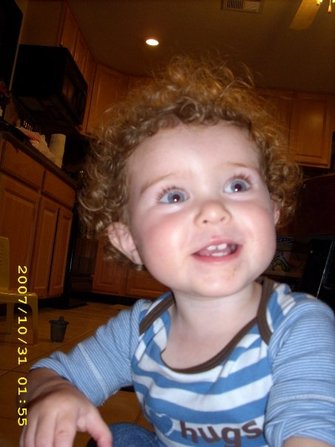
It was an hour or so after the Sunday worship service and the two of us were in my office. I was trying desperately to doze off while Reese was trying just as desperately to keep me awake. Neither of us seemed ready to give in to the other.
Then Reese said something out of nowhere that I didn’t expect. Like she often did back then, she said it in such a way that the words read on paper as a command, but her intonation makes them sound like a question. She said, “I clean your feet now?”
And she did.
I hung my feet over the side of the chair. We worked off my shoes and socks. She grabbed some of her diaper wipes and went to work. She buffed the top of my feet and scraped at their bottoms.
She separated each of my toes and plucked around for sock lint, which at the time she called, “Toe Jam.” (And I’ll have you know that no matter what she says to you, I didn’t have any.) Reese kept cleaning way longer than I thought she would. She barely said a word as she worked. As odd as it sounds to say it, it was really quite relaxing.
If you spend a little time around Reese you usually notice quickly that – despite her myriad fantastic qualities – she tends to be assertive, intense, mildly aggressive, and loud. Reese doesn’t take orders well and will often seek to avoid doing what she is asked to do (unless she is simultaneously asking herself to do the exact same thing at the exact same time).
But here she was humbly serving me, caring for me. It was a shock. Why was she doing it?
Surely there were a lot of reasons. During that stage of her life, Reese liked to pick at her own Toe Jam, for instance. (Thankfully this chapter has closed.) But, she probably also remembered, perhaps just distantly, the previous year when as part of the congregation’s Maundy Thursday worship service, Reese had her own feet washed by her mother.
But why did that happen in a worship service of all places?
It was because of the 13th chapter of John’s gospel story about Jesus. As the chapter begins, Jesus, who John takes great pains to say is the presence of the one, true God in our flesh and blood, strips down to his underwear and goes to work cleaning the Toe Jam out of his disciples’ feet.
The disciples are shocked, as well they should be. That’s not the way the “real world” works, right? Everything should be all about Jesus as big and powerful Lord waving his power around and the lowly disciples washing his feet. It shouldn’t be the other way round. It shouldn’t be about them and their dirty feet.
At the close of the chapter, Jesus tells the same friends that he has a new commandment for them (the word for the worship service, maundy, comes from the Latin word for command). His people are to love one another as he has loved them.
Clearly this must, at least in part, draw from and be illustrated by the foot washing that just happened. The take-away is that through such “love in action” the world will know that we are his. And, in this moment others may see that Jesus is a new type of Lord worth knowing for themselves.
Reese didn’t know this story about Jesus yet, at least in all its details. But she had seen it in action. Not only through actual foot washing, but through acts of shocking generosity and “it’s not about me” care she’d received from people who identify themselves with Jesus. And so, even as headstrong and bullheaded as she was (and is sometimes), Reese was starting to understand such an act of service and love is normal for the friends of Jesus.
As I close I would offer that this is the only sort of “normal” that will help the church survive and the world thrive in the years to come.
Having Reese wash my feet was wildly unexpected, but it was even more wildly wonderful.
 RSS Feed
RSS Feed